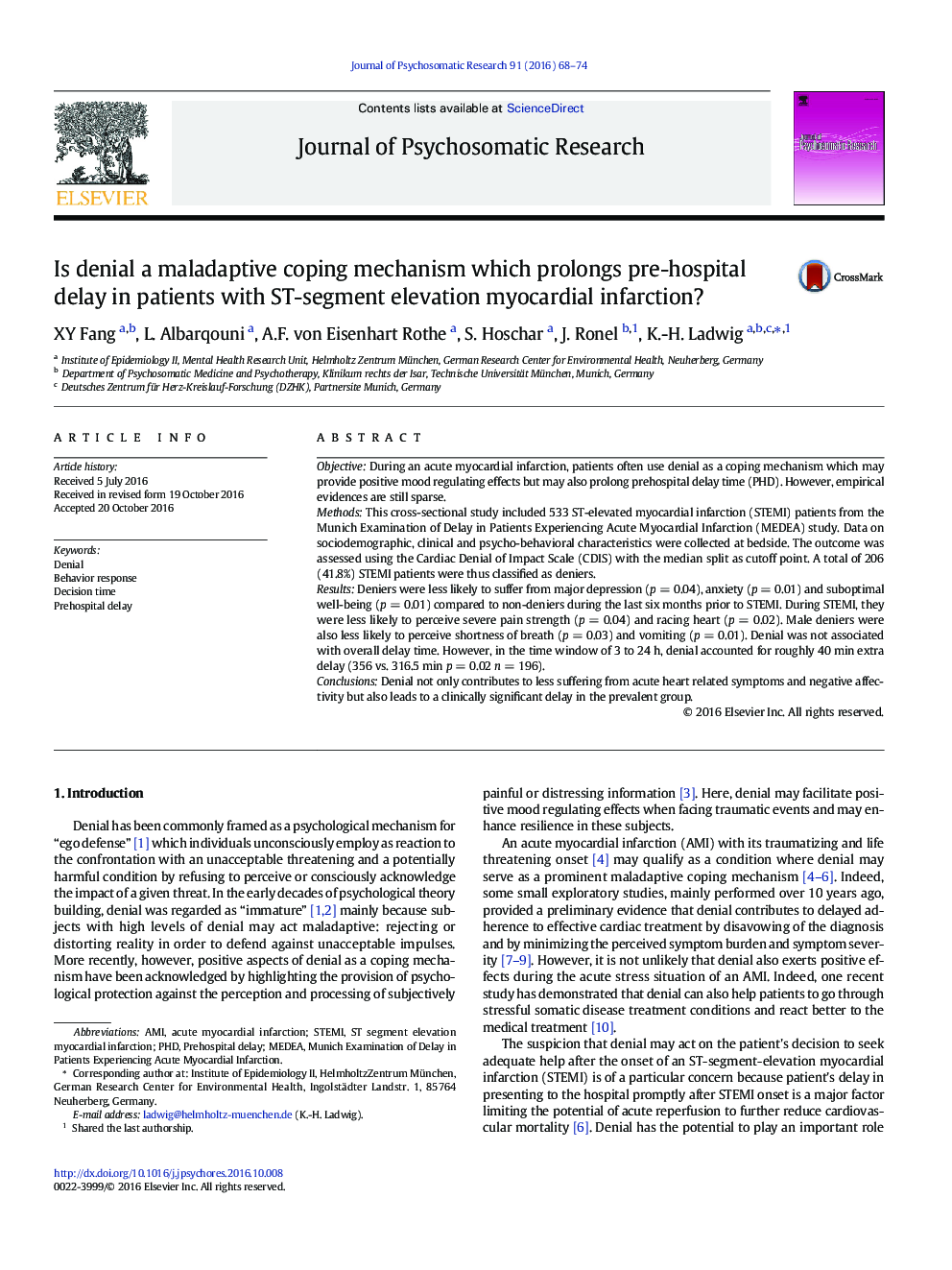| کد مقاله | کد نشریه | سال انتشار | مقاله انگلیسی | نسخه تمام متن |
|---|---|---|---|---|
| 5046105 | 1475904 | 2016 | 7 صفحه PDF | دانلود رایگان |
- Denial only minimally prolongs delay times to reach the coronary care unit of a hospital in overall time window.
- However, denial cause an extra 40mins delay in patients in time window of 3-24 hours.
- Denial has positive mood regulating effects (less depression and anxiety) in the prodromal phase of myocardial infarction.
- Individuals with a higher level of denial tend to report less symptom severity during acute myocardial infarction.
- Deniers are more likely to be younger and to be male.
ObjectiveDuring an acute myocardial infarction, patients often use denial as a coping mechanism which may provide positive mood regulating effects but may also prolong prehospital delay time (PHD). However, empirical evidences are still sparse.MethodsThis cross-sectional study included 533 ST-elevated myocardial infarction (STEMI) patients from the Munich Examination of Delay in Patients Experiencing Acute Myocardial Infarction (MEDEA) study. Data on sociodemographic, clinical and psycho-behavioral characteristics were collected at bedside. The outcome was assessed using the Cardiac Denial of Impact Scale (CDIS) with the median split as cutoff point. A total of 206 (41.8%) STEMI patients were thus classified as deniers.ResultsDeniers were less likely to suffer from major depression (p = 0.04), anxiety (p = 0.01) and suboptimal well-being (p = 0.01) compared to non-deniers during the last six months prior to STEMI. During STEMI, they were less likely to perceive severe pain strength (p = 0.04) and racing heart (p = 0.02). Male deniers were also less likely to perceive shortness of breath (p = 0.03) and vomiting (p = 0.01). Denial was not associated with overall delay time. However, in the time window of 3 to 24 h, denial accounted for roughly 40 min extra delay (356 vs. 316.5 min p = 0.02 n = 196).ConclusionsDenial not only contributes to less suffering from acute heart related symptoms and negative affectivity but also leads to a clinically significant delay in the prevalent group.
Journal: Journal of Psychosomatic Research - Volume 91, December 2016, Pages 68-74
